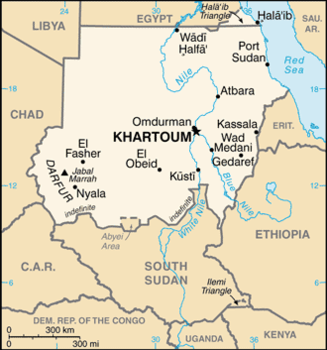With more than 200 cases of dengue fever reported as of Monday in the Darfur states in Sudan, the country’s Federal Ministry of Health reports that dengue fever has reached “an epidemic stage”, according to African media sources.

The epidemic has prompted a team of international experts from the World Health Organization (WHO) to go to Sudan and assess the situation.
Most dramatic is the situation in West Darfur state where the Minister of Health reported 83 fatalities.
Dengue fever is an infectious disease carried by mosquitoes and caused by any of four related dengue viruses. This disease used to be called “break-bone fever” because it sometimes causes severe joint and muscle pain that feels like bones are breaking.
People get the dengue virus from the bite of an infected Aedes mosquito. It is not contagious from person to person.
There are three types of dengue fever in order of less severe to most: the typical uncomplicated dengue fever, dengue hemorrhagic fever (DHS) and dengue shock syndrome (DSS).
The World Health Organization (WHO) estimates there may be 50–100 million dengue infections worldwide every year. However, new research from the University of Oxford and the Wellcome Trust, using cartographic approaches, estimate there to be 390 million dengue infections per year worldwide.


One thought on “Dengue reaches ‘epidemic state’ in Darfur states, Sudan”